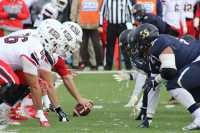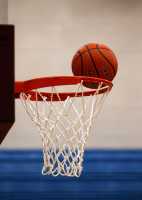
07 May Yes to Performance and No to Doping: Is Hemp Extract Legal in Sports?
Hemp-derived cannabidiol (CBD), or hemp extract, has been gaining in popularity in recent years. As long as CBD extract is produced using hemp plants, not marijuana, and contains less than 0.3% THC, it’s considered legal in all 50 states. Some states enforce restrictions on buyers, but federally, general consumers who want to use CBD are in the clear.
Unfortunately, while the social stigma surrounding hemp extract has largely been eradicated in general populations, the athletic community hasn’t fully embraced the benefits of CBD and some competitive fields still have strict regulations in place governing its use. Read on to find out what amateur, college, and professional athletes need to know.
CBD for Amateur Athletes
Amateur athletes don’t have to worry about the restrictions put in place by regulatory bodies. They are free to take advantage of CBD’s non-psychoactive therapeutic benefits, which include reduced joint pain and inflammation and improved muscle recovery after strenuous workouts. Guardian Athletic has more information about the benefits of cannabidiol for athletes looking to reduce recovery time and improve performance on their website.
Those who plan to engage in collegiate athletics or try out for semi-pro or professional sports teams should be aware that CBD can show up on a blood test for several days after consumption. They should also note that some hemp extracts contain up to 0.3% THC. This extremely low concentration is unlikely to produce a positive test result for marijuana, but it’s still better to buy CBD from a reputable supplier that uses lab testing to ensure 0% THC concentrations.
CBD for College Athletes
The National Collegiate Athletic Association (NCAA) is known for maintaining zero-tolerance standards for cannabis consumption. The organization’s most recent Banned Substances list doesn’t differentiate between THC and CBD. It creates a blanket prohibition against all cannabinoids. The NCAA doesn’t specifically list cannabidiol as a banned substance, but it does explicitly ban marijuana, THC, and synthetic cannabinoids.
Because CBD can be found in both marijuana and hemp, it exists in a legal gray area under the NCAA regulations. College athletes who take their athletic careers seriously may find that the improvements in performance offered by this natural and legal drug aren’t worth the risk of unintentionally subverting the NCAA’s strict regulations.
CBD for Professional Athletes
The World Anti-Doping Agency (WADA) hasn’t considered CBD a prohibited substance since it was legalized in the United States in 2018. However, THC remains a prohibited substance and, in most U.S. states, an illegal drug. Professional athletes should be careful about where they purchase their hemp extract and should only use CBD isolates, not full-spectrum products. They should also note that while WADA has already come around on CBD, many professional sports leagues still prohibit its use.
CBD and the NFL
The National Football League of America (NFL) only recently changed its policy on not just CBD, but cannabis, more generally. In March 2020, NFL players came to a bargaining agreement with league owners to remove marijuana from the list of banned performance-enhancing substances. NFL players are now free to use CBD extracts, or even medical marijuana in states where it is legal, to manage pain following sports injuries.
 CBD and the NBA
CBD and the NBA
The National Basketball Association (NBA) still considers all cannabis products and by-products banned substances. There’s a chance that may change soon, as former players like Al Harrington continue to advocate not just for CBD, but for medical marijuana, more generally. The league has indicated an openness to the idea of removing marijuana and its byproducts from its banned substances list but wants to see more scientific evidence before making a final decision so for now, professional NBA athletes should steer clear of CBD.
CBD and the NHL
The National Hockey League (NHL) is a bit of an outlier. Cannabis use isn’t encouraged by the NHL, but even using marijuana doesn’t leave players facing heavy fines or suspensions. They just need to undergo an assessment by an approved doctor, who may or may not recommend drug rehabilitation. NHL players will definitely have nothing to worry about if they want to use hemp extract to manage pain following sports injuries or speed up muscle recovery time after strenuous training.
CBD and the MLB
Major League Baseball (MLB) was one of the first leagues to start relaxing restrictions on cannabis and its components. MLB athletes aren’t subjected to random drug testing, and even when they are, they can test positive for up to 50 ng/ml of THC without facing fines. There is no testing threshold for CBD, so professional baseball players can use as much CBD isolate as they want.
Benefits of CBD for Athletes
Readers should now have a better idea of the consequences of using CBD as a college or professional athlete, but the question remains: why use it, to begin with? The answer is simple. CBD offers a safe and natural means of managing pain following injuries, speeding up muscle recovery, and reducing inflammation.
Hemp extract can also help with problems only tangentially related to sports and physical fitness. Consuming CBD before bed can help athletes get better sleep, which helps their muscles heal and improves concentration. It can also help with resolving problems like GI distress, which can keep athletes from performing at their best. It won’t solve problems with overeating or dehydration, but for those with underlying inflammation issues that contribute to GI distress during or following heavy exercise, CBD can substantially reduce symptoms.
The Bottom Line
Although most of American society has already gotten on board with CBD, professional athletic leagues are still playing catch-up. Professional baseball, football, and hockey players should have little to worry about when it comes to using CBD, although they should still purchase isolates rather than full-spectrum products. NBA players and college athletes may have to wait a while for the NCAA and the NBA to catch up with the changing times, but given the amount of advocacy surrounding regulatory issues with CBD and medical marijuana, it’s just a matter of time before they will also be in the clear.
[subscribe]
[last-modified]
The information on MedicalResearch.com is provided for educational purposes only, and is in no way intended to diagnose, cure, endorse or treat any medical or other condition. Always seek the advice of your physician or other qualified health and ask your doctor any questions you may have regarding a medical condition. In addition to all other limitations and disclaimers in this agreement, service provider and its third party providers disclaim any liability or loss in connection with the content provided on this website.
Last Updated on May 7, 2020 by Marie Benz MD FAAD
